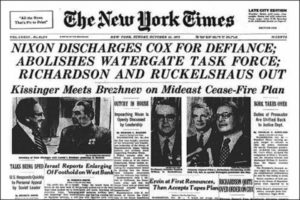Layers of History
This is the first year I’ve supported a World History class on my campus. Memories keep flooding back to my days teaching World History. In the first week, we asked the kids to tell us which invention they thought was the most important. We gave them several examples to choose from, but they could go off script if they wanted.
The light bulb moments are always the most fun when teaching. When you see students realize how one invention leads to others it is always a joy to watch. History has always worked that way. One event or one discovery leads to others. It’s the butterfly effect in action.
This is why the white-washing of history is so dangerous. You cannot simply erase one event from history and call it good. Those events effect other events and impact millions of lives generations later. These things seem insignificant, but nothing is insignificant.
One tiny example is the story of Henrietta Lacks. Her cells have become famous in the science world, but she only exists in relative obscurity. She died very young from cervical cancer, but before she died the Mayo Clinic harvested some cells to figure out what was wrong with her. They told her about her cancer, but in the process discovered those cells could keep regenerating. In effect, she would live on forever.
The Lacks family sued the company harvesting her cells because they never gained permission to do so. The Mayo Clinic asked the family if they could study her cells and they said no. They did it anyway. It seems like such an insignificant story, but when paired with other similar stories it helps explain why some people have a natural distrust of science and vaccines.
When we deny events like the Tuskegee Study we not only remove that event, but we remove context from our collective understanding of history. We well know these atrocities are not necessarily isolated events. Some of these events have never been a part of the natural teaching of history, but others have been. At present, there are those that want to say the Trail of Tears never happened. They want to call it something else. They want to say the Cherokee chose to migrate to Oklahoma. Sure they did.
When we remove the event and the context of that event then we fail to understand our current condition. We deny it exists. So, we explain it away as something else. People don’t have a natural distrust of people in power. They are somehow jaded because of their own failures and problems. They are scapegoating us for their issues. There is obviously no doubt that some of this is true. Success and failure both have numerous layers, causes, effects, and the like. Our lives are nuanced just like history itself. Nothing is ever that simple.
Understanding history has never been about blame or internalizing the mistakes of the past. It is simply about understanding them and understanding their impact on the current condition. If we understand then we can begin to heal and be a part of the solution. If we don’t then we continue to perpetuate it and compound it.
